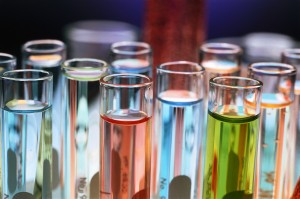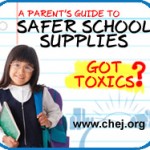The Vermont Senate Health and Welfare Committee is currently hearing testimony on S.247, a bill that bans the manufacture, sale, and distribution of reusable food or beverage containers, and infant formula or baby food, that is stored in a plastic container, jar, or can that contains Bisphenol A (BPA).
PPNNE’s Medical Director, Dr. Cheryl Gibson, testified in support of this legislation, strongly urging the committee to vote in support of the bill.
 Dr. Gibson’s testimony really dove into the science and health implications of BPA. Here’s an excerpt of her testimony:
Dr. Gibson’s testimony really dove into the science and health implications of BPA. Here’s an excerpt of her testimony:
"BPA is found in the lining of metal food cans and in some plastic food containers, including some baby bottles, water bottles, microwave ovenware and eating utensils. Because BPA is an unstable polymer and is fat-seeking, it can leach into infant formula and other food products, especially when heated. Once in food, BPA can move quickly into people - a real concern for women of childbearing age and for young children."
"At PPNNE’s fall conference on women’s environmental health, Janet Gray, editor of the Breast Cancer Fund's State of the Evidence, illustrated how BPA in food containers can affect our health. Please take a moment and picture three petri dishes in a laboratory. When estrogen was added to breast cancer tumor cells in a petri dish, the tumor cells divided and grew. When BPA was added to breast cancer tumor cells in a petri dish, the tumor cells divided and grew. When liquid from a BPA-lined can of string beans was added to breast cancer tumor cells in a petri dish, the tumor cells divided and grew." To read all of Dr. Gibson’s testimony, click here.
The real answer to eliminating BPA lies in chemical reform and policy change. That is why it's so important to contact your elected officials and ask them to support this bill.
In the meantime, here are a few ways to reduce your exposure to BPA.


 Dr. Gibson’s testimony really dove into the science and health implications of BPA. Here’s an excerpt of her testimony:
Dr. Gibson’s testimony really dove into the science and health implications of BPA. Here’s an excerpt of her testimony: The more we learn about the 80,000-100,000 unregulated chemicals out there, the more we realize how dangerous some are to our health. There is growing evidence linking chemical exposure to
The more we learn about the 80,000-100,000 unregulated chemicals out there, the more we realize how dangerous some are to our health. There is growing evidence linking chemical exposure to 


 In 2008, Maine’s Governor John Baldacci signed into law an
In 2008, Maine’s Governor John Baldacci signed into law an